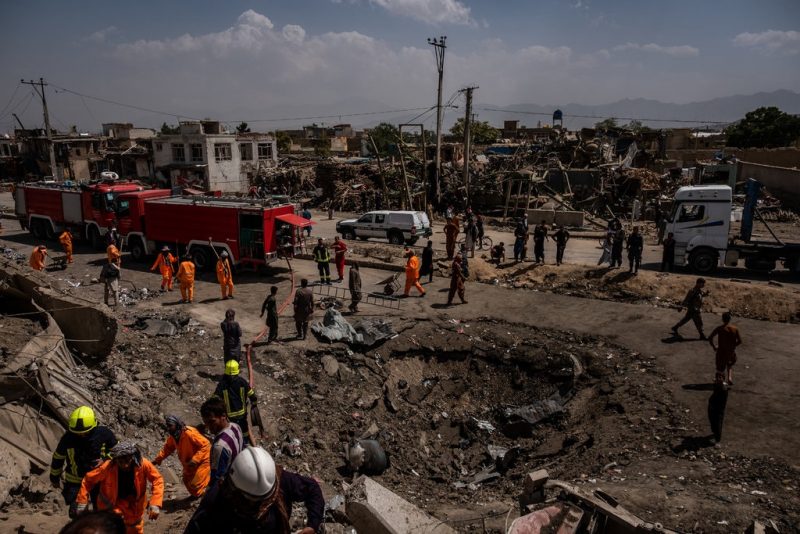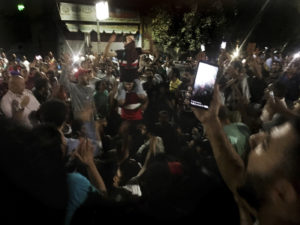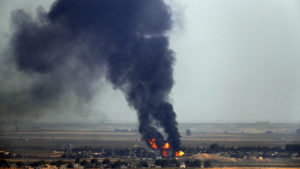By: Dianne Jahangani
Journal of Global Rights and Organizations, Associate Articles Editor
TEHRAN, Iran – The world is currently at war. For the first time in history, all 195 nations have the same exact enemy. The only caveat is that this time, the enemy is invisible, which makes defeating it so much more difficult.
It seems as though the world has been put on pause. For the past few weeks, every single headline on every single news outlet is about COVID-19, ranging from how many people have been infected to how many people have died, or what progress has been made on finding a cure and what the United States government is currently doing to combat the unforeseen effects of this virus.
One would think that in a time of grief, nations would come together to help fight this virus. However, human rights violations have not subsided; in fact, some may argue they have gotten worse.
History has demonstrated that even if a leader is deemed to be unfavored, during times of war, the people will always support him to defeat the enemy, since many naturally look to their leader to protect them. However, in many cases, the leader does not act in the best interest of the people or the public, which leads to a significant increase in human rights violations. In fact, statistically speaking, during times of war, human rights violations typically exceed the average amount. This phenomenon is exactly what is currently occurring in Iran.
On March 31, the United Nations released a statement stating that history has shown that the effects of sanctions against a country include dramatic and detrimental impacts on economic, social, and cultural rights. The statement further emphasized that economic sanctions need to be lifted to prevent hunger crises in countries that have been hit hard by COVID-19.
Iran has become one of the worst effected countries by this pandemic, reporting over 58,000 cases and 4,000 deaths. Additionally, Iran is subject to many sanctions imposed by the United States, which further causes Iran’s economy to suffer. With this new outbreak, the United States does not have any plans to release Iran from its sanctions; however, understanding the reality of the difficulty COVID-19 has imposed on all countries, the United States has indicated that it would be more than willing to assist Iran in this time of crisis. Yet, on March 22, the government of the Islamic Republic of Iran vocally expressed its strong opposition towards receiving aid and resources from foreign nations such as the United States, but still requested that the U.S. remove its sanctions. This refusal by Iran demonstrates the lack of political leadership within the country, further exacerbated by the rising death toll and number of cases increasing exponentially each day.
According to the Health Ministry, “one person dies in Iran every 10 minutes from the coronavirus, and someone is infected every 50 minutes.” Iran does not have enough medical supplies or resources to combat this virus on its own. By refusing to accept aid during the peak of the pandemic, the Iranian government is leaving its people vulnerable to the virus. This is a significant human rights violation.
According to the World Health Organization, international human rights law guarantees “everyone the right to the highest attainable standard of health and obligates governments to take steps to prevent threats to public health and to provide medical care to those who need it.” The Iranian government’s actions are directly contradicting the words of the World Health Organization. The number of infected and dead continues to rise in Iran due to the Supreme Leader and his affiliates pushing conspiracy theories, rather than analyzing concrete data to resolve the pandemic. In many of his public statements, Ayatollah Ali Khameni blames the U.S. for the outbreak of COVID-19, despite Secretary of State Mike Pompeo stating in a White House briefing that “the whole world should know that humanitarian assistance to Iran is wide open … they’ve got a terrible problem there and we want that humanitarian, medical assistance to get to the people of Iran.”
Khameni publicly commented on his refusal to accept aid and medication, stating that he believes the virus is naturally structured to further spread amongst the Iranian people.
The Iranian government is violating human right laws as it continues to deprive its people of basic necessities such as medications, proper hospital care, and other such medical supplies. The fact is that people are dying every 10 minutes, and the government continues to deny foreign aid. The Iranian people have the right to life and the government is infringing upon this right.
For further information, please see:
Aljazeera – Trump grilled on punishing Iran sanctions amid coronavirus crisis- 3 Apr. 2020
Aljazeera – Iran leader refuses US help; cites coronavirus conspiracy theory – 23 Mar. 2020
TIME – Iran Leader Refuses U.S. Help to Fight COVID-19, Citing Conspiracy Theory – 22 Mar. 2020
Human Rights Watch – Human Rights Dimensions of COVID-19 Response – 19 Mar. 2020


